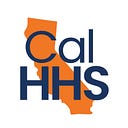Ask these questions to forge a closer bond with someone you care for
By Susan DeMarois, Director of the California Department of Aging
When was the last time you tried connecting with someone older in your circle of family and friends? Really connecting — not just shallow, weather-related banter, but talking about things that helped make a loved one who they are.
“Dad, what’s the most positive change you’ve witnessed in the world?”
“If you could relive any year of your life, cousin, which would it be?”
Forging deeper family connections can bring us closer to those we love and care for. That’s one goal of this year’s theme for National Family Caregivers Month: #CaregiversConnect. National Family Caregivers Month has been formally designated every November since 1997 and is a way to celebrate those who selflessly give of themselves to improve the lives of older adults and people with disabilities in their families.
Connecting with other generations can be rewarding and fulfilling for people of all ages. As understanding increases, so does compassion — a key to success for those shouldering the rewarding but demanding role of caregiving.
If you are a family caregiver, you’re in good company. There are 5 million caregivers in California alone, and 53 million across the United States (up 9.5 million from 2015) — and growing. As people live longer, healthier lives and baby boomers enter retirement years, many older adults require help, from meal preparation and dressing to navigating health care and much more.
And if you’re a caregiver, there are resources to support you.
You can contact one of California’s 11 Caregiver Resource Centers, as well as 33 Area Agencies on Aging and Adult Day Centers all across the state. From these services and supports, countless caregivers have found someone to offer respite, help navigating legal and medical paperwork and finding mental health support, and access to virtual support groups. The California Department of Aging’s AskCA initiative offers a roundup of available state resources.
While all of these programs offer support, the connections that happen over simple kitchen-table conversation can build and strengthen bonds that help sustain caregivers. If you’ve tried connecting with a loved one in this way, you’ve seen how they can light up when you ask about their life and their many experiences — which many people fondly remember in sharp detail — and how special those shared memories can be.
“What was your favorite holiday as a child?”
“Did you ever do anything as a teen that your parents didn’t approve of?”
While strolls down memory lane can be fun, it’s also a good idea to set aside some time to discuss the things that matter most to older adults in their current lives. Whether you’re a full-time caregiver or checking in by phone, letting them know you care about their safety, finances, wishes, and well-being is an excellent way to connect.
You might try to gauge which tasks they’re struggling with, if they’re equipped to fend off scams, or whether they ever feel lonely. Ask if they have a system for organizing mail, usernames and passwords, and essential legal documents, such as advanced health care directive and wills.
“Do you ever feel too tired to cook?”
“Can I help set up autopay for your bills?”
National Family Caregivers Month is a time to recognize the challenges of caregiving, to reflect on the needs of caregivers, and to acknowledge that self-care is not selfish.
Caregivers, paid and unpaid, are doing one of the most important jobs in the world, but it can also be a lonely job. If you ever feel isolated, consider connecting with community partners and with other caregivers. You offer kindness, help, and love every day, and you deserve the same in return.
